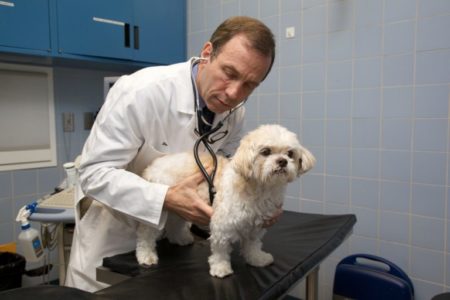Do dogs get hairballs? National Hairball Awareness Day 2019

Do dogs get hairballs? National Hairball Awareness Day 2019
April 26, 2019 is National Hairball Awareness Day. Over the past few years I have written about two notable cats with hairballs — Sunshine and Toby — and in 2015 I summarized the most recent information on feline hairballs. But what about dogs? Why are they missing from this list?
Searching for canine hairballs
I used PubMed, a search engine which contains 29 million biomedical citations to hunt down research into canine hairballs. I even used the fancy medical term for hairballs, trichobezoar [trĭk′ō-bē′zôr′], in the search bar. All that effort only got me about 10 instances of hairballs in dogs. Clearly, hairballs are less common in dogs.
Hairballs are bad news
Despite the limited information I could find on hairballs in dogs, it’s clear these ingested wads of hair can wreak havoc in the intestine. The reports detail vomiting and weight loss in the minor cases. Severe cases lead to intestinal blockage and, in rare cases, intestinal rupture. Surgical removal of the hairball and repair of the intestine typically resolves the problem.
Dogs have plenty of hair
Any Labrador family will tell you – dogs shed a lot. So you would think they should have plenty of hairballs. You could make an argument that since Labradors are big their intestines are much larger than those of a cat, and maybe the hair passes more easily? That theory breaks down, however, when you consider the many dogs that are smaller than cats but still don’t seem to get hairballs. Is it possible that hair isn’t the problem? Could it be the cat? Perhaps. Cats are more vigorous groomers than dogs, and cats have a spikey, brush-like tongue. Maybe cats simply ingest more hair than their canine counterparts and that leads to hairballs.
Since hairballs are so infrequent in dogs, canine foods and treats designed to prevent hairballs don’t exist. To prevent hairballs, dog owners are left with brushing, combing and clipping to reduce the amount of hair their dog ingests.






























